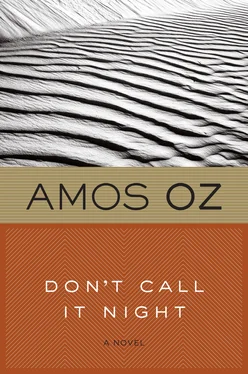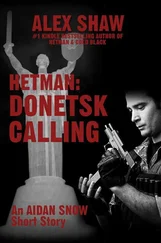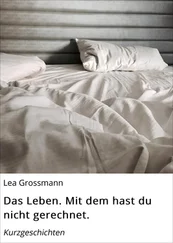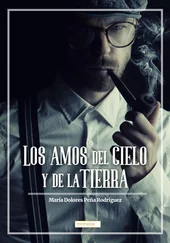I restrained myself.
No point in getting into an argument.
Particularly since I've abandoned her, too. I spend my time with the husband and his father over the pickled herring and vodka that I've got into the habit of taking with me. I wolf thick borsch and stuffed dumplings. Suddenly I find myself presenting a survey, in orderly instalments, without language, in pantomime and broken words, of the history of the Zionist endeavour, the swamps, the underground, the illegal immigration, the British, the Nazis, the victories, the Western Wall, Entebbe, the West Bank settlements. The two of them look at me without surprise but without much interest either, without interrupting their steady munching, occasionally bursting into fierce laughter that I am unable to relate to my exposition. Last time I went I managed to win fifty shekels from them at poker, and they both choked with laughter, slapping their knees and the back of my neck, thumping my back, they could hardly stop. Nevertheless, on Tuesdays I still settle down in the California for a couple of hours, playing chess with Dubi Weitzman, as I've done for years. And almost every afternoon I walk round the ruin on my own. Though I don't carry the sketchbook and pencil any more. As if I've lost the thread.
Muki Peleg phoned excitedly: he'd managed to secure a trial period for my two muzhiks, a week, with Jacques Ben Loulou from Ben Elul's Garage, that saint, admittedly for nominal wages, so they could show what they could do, as the Queen of Greece said to her three Turks. You don't know that one, Theo? Okay. I'll teach you some time. Just bear in mind that a Turk and a Greek woman is a bit like Ludmir and a quarry. The point is, tell them to be there at seven o'clock tomorrow morning. What do you think of me? Aren't I just Albert Einstein disguised as a village saint?
I said: There's no one else like you, Malachi.
And Muki: Just as well.
Despite the cracked tiles, the cobwebs and the thick dust, the missing windows, the broken cabinets, the smashed or stolen washbasins and toilet bowls, the roof groaning under the ravages of the desert wind, the dirty syringes and bloodstained wads of cotton wool and the stench of urine and the dried damp patches, I am gradually becoming convinced that the house was an excellent buy because it was built honestly. Solidly and generously. The rooms are spacious and tall. The walls are thick. All the rooms open onto a central space, a fairly extensive hall in the middle of the building. This central space is dark and pleasant, storing a gentle coolness even in the worst heatwave. Something in the way it is built reminds me of an Arab or Armenian house from before the wars. Or the German Colony in Jerusalem. The depth of the arched windows. The curve of the corridor. The flagstones. In the big garden a score of tight-packed pine trees grow, their trunks bent northwards by the southerly winds. The trees overhang the tiled roof and besiege the house with their shadows. Every breath of wind makes the shadows quiver slightly. A subdued light filters through the pine needles, a hushed murmur behind your back, and an ever-changing stream of shadows dappled with patches of light, plays on the walls. Sometimes this movement gives you the tense feeling that there is somebody walking around on tiptoe in the next room. All round the pine wood the white-hot summer light beats down, but the garden and the house stand separated in shade, like an enclave of winter. Plunging to his own seabed, Noa said, and Avraham Orvieto felt the windowsill and said nothing.
Yesterday at six o'clock in the morning I loaded a shovel, pruning shears and a saw into the Chevrolet, borrowed my two Russian weight-lifters from Ben Elul's Garage, and for seven hours we cleaned all the filth out of the pine wood and trimmed the trees. When Linda and Muki appeared after lunch, saying that they had just heard I was planting a tower-and-stockade settlement here and were enlisting to help, everything was finished. We had even propped up the trunks of the trees that I thought were too bent. On Thursday a Bedouin contractor is coming, a friend of Dubi Weitzman's, to start putting up the new fence and to fix a wrought-iron gate.
Then I shall have to renovate the whole structure and adapt it for its new purpose.
But what is its purpose? I don't have a clear idea any more. I haven't finished writing the memorandum either. I've lost the thread.
Linda still types on a voluntary basis the letters I dictate to her at the office, and we send them off to various authorities. But the idea is becoming vague, as though the meaning has faded. And meanwhile we have attracted the wrath of the volcanic Ludmir. In his column in the local paper. "A Voice in the Wilderness", he calls me a shady character. He terms Avraham Orvieto's benefaction the tainted money of a pedlar of weapons of destruction. I should have published a rejoinder; but I couldn't think what to write. I've lost the thread again. As for Orvieto, he has vanished. He may have gone back to Nigeria. This time he has apparently taken his lawyer with him. The money still hasn't materialized. Perhaps it never existed. But Natalia suddenly came back to us from Galilee, pregnant and even prettier than I remembered her; with that expression of innocence and wonder she served me a glass of very strong, very hot tea, which for some reason made her husband and his father choke with laughter, which this time, to my utter astonishment, carried me away, too, and she burst into tears. But instead of getting involved, instead of trying to protect her or comfort her, I was smitten with desire. For some reason I was reminded of the broadcast I'd heard from London, about the life and loves of Alma Mahler. The presenter was going to explain to listeners what she was really like. This notion of "reality" seemed to me ridiculous but I couldn't decide what to replace it with. How can one know?
On a scrap of paper I jotted down: Furnishings. Equipment. Problem of heating in winter. Kitchen or catering? Interior alterations. Plumbing. Wiring. Drainage. Water supply. Roof. Floor tiles. Bars on the windows? Fitted cabinets. Telephone line. A treatment room? A classroom? A space for TV and video? Computers? Clubroom? Library?
All this before we get to the actual plan of operations. But what operations? And who with? Here a curtain comes down inside me, like a monsoon. As if the empty building has become an end in itself. Maybe it's time to sit down for a tete-a-tete with Orvieto. To try to fathom his aims once and for all. In Tel Aviv? Or perhaps in Lagos? Maybe very soon I'll fly out to see him for a couple of days. Without telling her. But for some reason I still shrink from this thought. If I try to imagine the two of us meeting behind her back, the picture arouses in me a mixture of dread and shame. As if I were plotting to deceive her. As if I had woven a tissue of lies so as to be alone with another woman.
So I rang Dubi Weitzman and told him to put off the Bedouin contractor and the workmen for the time being. Thursday is too soon. Even next week is too soon. What's the point of putting up a fence round something that doesn't exist? Round a dream? Still, I haven't forgotten her paralyzed father sitting on his roof in a wheelchair for years on end, getting heavier and heavier, like a defeated wrestler, and following what went on in the world through the lens of his telescope. If only that roof had had a proper parapet, the old man might have been alive today. The bulldozers wouldn't have demolished the house on the edge of the village. The collection of picture postcards would not have been donated to the Tolstoyan farm. And she would still be there, not here, still looking after him no doubt, worrying about him, singing to him, feeding him, putting him to bed, changing his diaper, five times a day.
The new dress we bought her in Tel Aviv the day we signed the contract has a tiny defect: it doesn't hang straight over the hips. We shall have to ask Paula Orlev to alter it after all. For some reason the thought that her fingers will touch this dress disgusts me. I wonder whether the Indian girl Tal has learned from her mother how to straighten a waistline. Or maybe by some miracle Natalia, my pregnant virgin, can handle a needle.
Читать дальше












